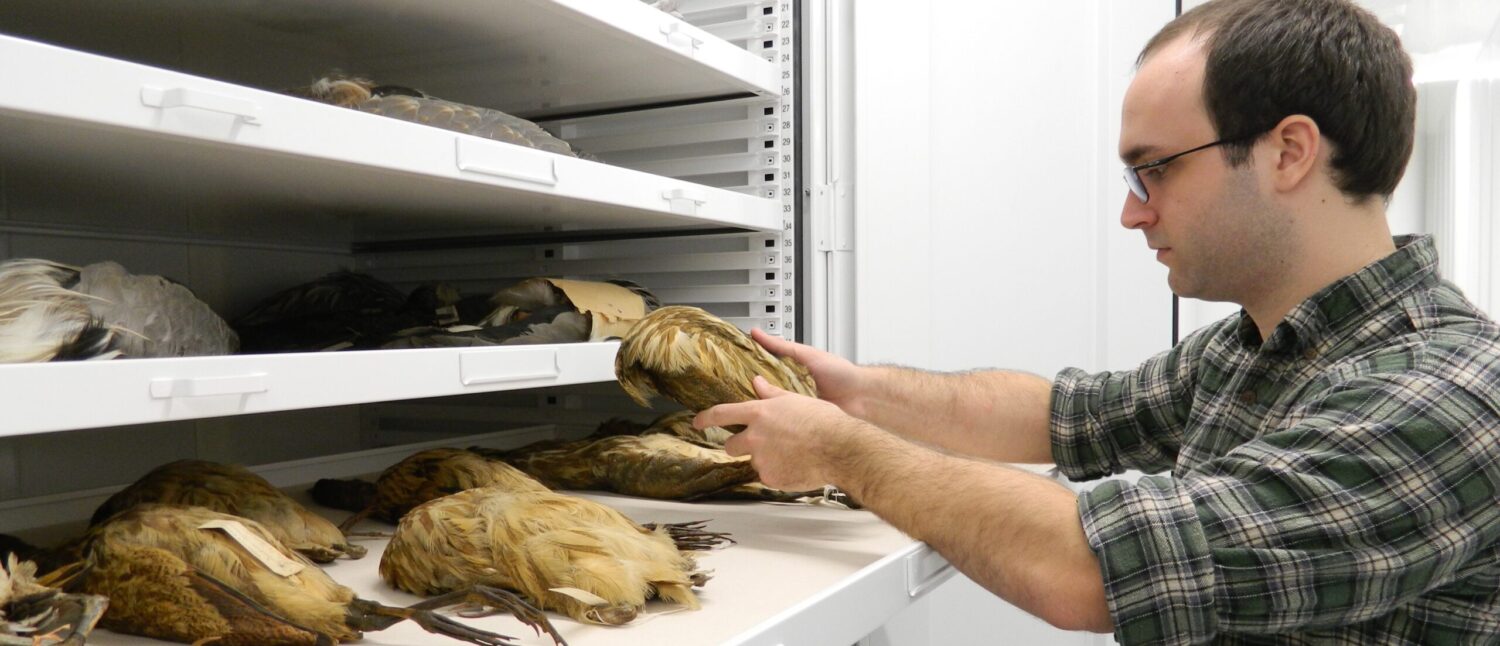NSC Alliance President William Brown recently provided written outside witness testimony to the House and Senate Subcommittee on Commerce, Justice, Science and Related Agencies Appropriations. The testimony requested that Congress provide President Obama’s requested funding for NSF in FY 2011. Moreover, the testimony expressed support for NSF initiatives that support natural science collections, digitization of collections, and informal science education programs.
The NSC Alliance testimony follows:
The Natural Science Collections Alliance (NSC Alliance) appreciates the opportunity to submit testimony about the President’s fiscal year (FY) 2011 budget request for the National Science Foundation (NSF). We encourage Congress to appropriate the President’s requested $7.424 billion for the NSF for FY 2011.
NSC Alliance is a nonprofit association that supports natural science collections, their human resources, the institutions that house them, and their research activities for the benefit of science and society. We are comprised of over 100 institutions who are part of an international community of museums, botanical gardens, herbariums, universities and other institutions that house natural science collections and utilize them in research, exhibitions, academic and informal science education, and outreach activities.
NSF drives innovation and supports job creation through research grant awards to scientists and research institutions, supporting the acquisition of research instruments and investments in research infrastructure, and supporting the education and training of undergraduate and graduate students. These and other NSF programs underpin the nation’s research enterprise. Research supported by NSF generates knowledge and ideas that spur economic growth, stimulate innovation, and improve our understanding of the world in which we live.
The President’s budget request for FY 2011 would invest $6.019 billion in the Research and Related Activities (R&RA) programmatic accounts. Through R&RA, the agency supports innovative research that advances the frontiers of our natural, physical and social science disciplines. Included within this request is $767.81 million for the Biological Sciences Directorate (BIO), a 7.5 percent increase over the FY 2010 enacted. The President’s budget would provide the Geosciences Directorate (GEO) with $955.3 million in FY 2011, a 7.4 percent increase.
As the primary federal funder of basic biological research, BIO serves a vital role in ensuring our nation’s global leadership in the biological sciences. BIO provides 68 percent of federal grant support for fundamental biological research conducted at our nation’s universities and other nonprofit research centers, such as natural history museums. The Directorate supports transformative research that has improved our understanding of complex living systems and is helping to address major new challenges — mitigating and adapting to climate change, understanding and conserving biodiversity, and developing new bio-inspired technologies.
NSF provides essential support for our nation’s natural science collections. These research centers enable scientists and students to study the data of life for the history of the planet, conduct modern biological and environmental research, and provide undergraduate and graduate students with the opportunity to learn directly from nature.
The President’s budget request for NSF includes important funding for natural science collections. Ten million dollars is allocated to continue efforts to digitize and network U.S. specimen-based research collections. This funding is desperately needed to increase access to the data and specimens in our nation’s scientific collections. Collections play a central role in many fields of biological research, including disease ecology, biodiversity, and climate change. They also provide critical information about existing gaps in our knowledge of life on Earth.
The importance of scientific collections to our nation’s research infrastructure was recognized by the federal Interagency Working Group on Scientific Collections, which reported that: “…scientific collections are essential to supporting agency missions and are thus vital to supporting the global research enterprise.”
The FY 2011 budget request includes important funding to continue efforts to better understand biodiversity. Funding is included for cross-disciplinary research to define the impacts of biodiversity on ecosystem services and human well-being. Additionally, the Science, Engineering, and Education for Sustainability (SEES) program will continue to study the scope and role of biodiversity in climate adaptation and ecosystem sustainability.
Also within the R&RA program, GEO provides some support for research and student training opportunities at natural science collections. GEO supports cross disciplinary research on the interactions between Earth’s living and non-living systems–research that has important implications for our understanding of climate change, water and natural resource management, and biodiversity.
In addition to the R&RA programs, the President’s budget provides important funding for the Informal Science Education program within the Education and Human Resources division. The Informal Science Education program works to advance our understanding of informal science, technology, engineering, and mathematics (STEM) learning. This program supports projects that create tools and resources for STEM educators working outside of traditional classrooms. The program builds professional capacity for research, development, and practice in the field. The Administration’s FY 2011 budget would decrease funding for the program by $1.6 million from FY 2010 enacted.
A sustained federal investment in NSF is prudent. Public investments in biological research can generate a $2 to $10 return for each dollar invested. The President’s budget request for NSF will help spur economic growth and innovation and continue to build scientific capacity at a time when our nation is at risk of being outpaced by our global competitors. Please support an investment of $7.424 billion in NSF for FY 2011.
Thank you for your thoughtful consideration of this request. Please do not hesitate to contact me or Dr. Robert Gropp at 202-628-1500 if you require additional information.

